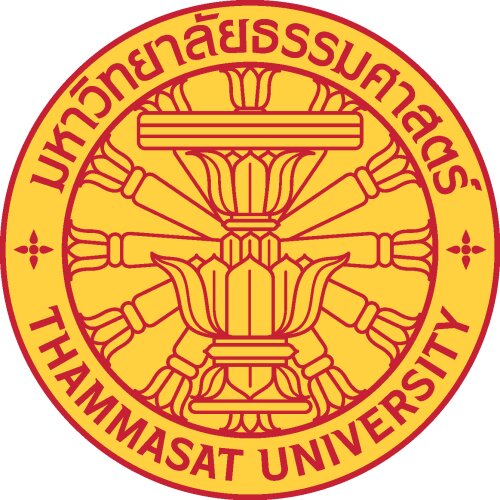Best Civil & Human Rights Lawyers in Thailand
Share your needs with us, get contacted by law firms.
Free. Takes 2 min.
Or refine your search by selecting a city:
List of the best lawyers in Thailand
Legal guides written by Smart Legal Solutions:
- Main Legal Measures to Protect Foreign Investment in Thailand
- The importance of the geographical indications for the Thai economy
Thailand Civil & Human Rights Legal Articles
Browse our 1 legal article about Civil & Human Rights in Thailand written by expert lawyers.
- What Are the Steps to Change My Name Legally in Thailand?
- Changing one’s name is a common occurrence in Thailand, whether due to marriage, divorce, religious reasons, personal preferences, or cultural beliefs. The Thai government allows for legal name changes but requires a specific process. This guide will provide step-by-step instructions on legally changing your name in Thailand, covering both the... Read more →
About Civil & Human Rights Law in Thailand
The field of Civil & Human Rights law in Thailand is built on the principles outlined in the country's Constitution, which guarantees a range of fundamental rights and freedoms. These rights include freedom of expression, freedom of assembly, the right to privacy, and protection against discrimination. Additionally, Thailand is a signatory to several international human rights treaties, further strengthening the legal framework designed to protect individuals' rights and freedoms. However, the practical implementation of these rights can vary, and legal challenges can arise for both locals and foreigners navigating the Thai legal system.
Why You May Need a Lawyer
There are several situations in which individuals may need legal assistance concerning civil and human rights in Thailand. These include, but are not limited to:
- Cases of discrimination based on ethnicity, religion, gender, or sexual orientation.
- Seeking redress for unlawful detention or violations of freedom of speech.
- Challenging government actions that infringe on personal rights and freedoms.
- Issues related to privacy and data protection.
- Instances of police misconduct or abuse of power.
- Dealing with defamation suits, particularly those affecting digital freedom.
In these situations, a lawyer with expertise in civil and human rights can help navigate the legal system, provide representation, and ensure that your rights are protected.
Local Laws Overview
Key aspects of local laws relevant to civil and human rights in Thailand include:
- The Constitution of Thailand: Serves as the primary legal document guaranteeing civil rights and liberties. It outlines the fundamental rights accorded to all citizens.
- Criminal Code: Includes provisions relating to defamation, sedition, and lese majeste, which can affect freedom of expression.
- Computer Crimes Act: Regulates online activities and has implications for digital rights and freedom of speech on the internet.
- Laws regarding peaceful assembly: Govern public gatherings and the right to protest, often subject to governmental regulation.
- Anti-Discrimination Laws: Provide a legal framework to protect against discrimination in various contexts, though enforcement can be inconsistent.
Frequently Asked Questions
What are my basic rights under the Thai Constitution?
The Thai Constitution guarantees several rights, including the right to equality, freedom of expression, freedom of assembly, and protection from unlawful detention, among others.
Can I challenge a government decision that affects my human rights?
Yes, you can challenge government decisions or actions through the administrative and judicial review processes with the help of a lawyer.
What should I do if I face discrimination in Thailand?
If you face discrimination, consider consulting a lawyer who specializes in civil rights to explore legal remedies available under local laws.
How can I ensure my online activities are legal in Thailand?
Understanding the Computer Crimes Act and avoiding activities that could be interpreted as defamation or threats is advisable. Consulting with legal experts can provide further guidance.
What is lese majeste, and why is it significant?
Lese majeste is a law that prohibits defaming, insulting, or threatening the monarchy. It remains significant due to its strict enforcement and potential impact on freedom of speech.
Are protests and public assemblies allowed in Thailand?
Yes, public assemblies are allowed but subject to regulations and permits. Unlawful gatherings can lead to legal consequences.
What legal protections are in place for freedom of speech?
While freedom of speech is protected under the Constitution, certain limitations exist concerning national security, defamation, and lese majeste.
How can I file a complaint about police misconduct?
Complaints about police misconduct can be filed with the National Human Rights Commission of Thailand or other relevant government bodies.
What legal aid is available for low-income individuals?
Legal aid organizations and certain NGOs provide free or low-cost legal services to those who qualify based on income and case type.
Where can I learn more about my rights?
Resources such as the National Human Rights Commission and civil society organizations provide information and advocacy for human rights education.
Additional Resources
For assistance and more information, consider reaching out to these organizations:
- National Human Rights Commission of Thailand
- Amnesty International Thailand
- Thai Lawyers for Human Rights
- Human Rights Watch
- Office of the Public Sector Anti-Corruption Commission
Next Steps
If you require legal assistance in civil and human rights, follow these steps:
- Identify and document the specific issue or violation.
- Seek initial advice from a reputable legal aid organization or lawyer experienced in human rights law.
- Gather all relevant evidence and documentation related to your case.
- Consult with a lawyer to discuss your rights, possible defenses, and legal strategies.
- Consider alternative dispute resolution methods before taking formal legal action, if applicable.
- Proceed with legal action, if necessary, with the guidance and representation of your lawyer.
Taking these steps can help ensure that your civil and human rights are effectively addressed and safeguarded under the law in Thailand.
Lawzana helps you find the best lawyers and law firms in Thailand through a curated and pre-screened list of qualified legal professionals. Our platform offers rankings and detailed profiles of attorneys and law firms, allowing you to compare based on practice areas, including Civil & Human Rights, experience, and client feedback.
Each profile includes a description of the firm's areas of practice, client reviews, team members and partners, year of establishment, spoken languages, office locations, contact information, social media presence, and any published articles or resources. Most firms on our platform speak English and are experienced in both local and international legal matters.
Get a quote from top-rated law firms in Thailand — quickly, securely, and without unnecessary hassle.
Disclaimer:
The information provided on this page is for general informational purposes only and does not constitute legal advice. While we strive to ensure the accuracy and relevance of the content, legal information may change over time, and interpretations of the law can vary. You should always consult with a qualified legal professional for advice specific to your situation.
We disclaim all liability for actions taken or not taken based on the content of this page. If you believe any information is incorrect or outdated, please contact us, and we will review and update it where appropriate.
Browse civil & human rights law firms by service in Thailand
Thailand Attorneys in related practice areas.
Browse civil & human rights law firms by city in Thailand
Refine your search by selecting a city.

















